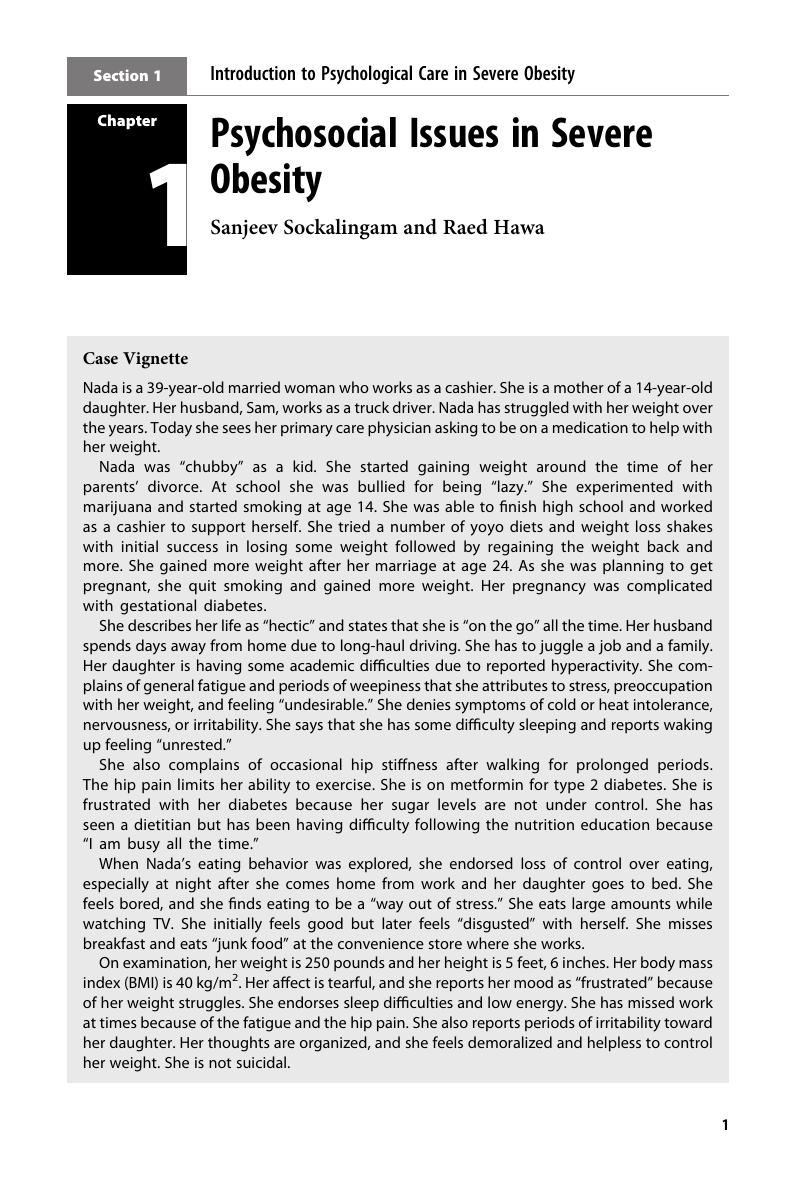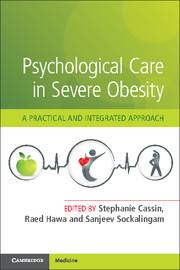Book contents
- Psychological Care in Severe Obesity
- Psychological Care in Severe Obesity
- Copyright page
- Dedication
- Contents
- Contributors
- Preface
- Section 1 Introduction to Psychological Care in Severe Obesity
- Chapter 1 Psychosocial Issues in Severe Obesity
- Chapter 2 The Role of Psychosocial Interventions in Supporting Medical and Surgical Treatments for Severe Obesity
- Chapter 3 Weight Stigma and Related Social Factors in Psychological Care
- Chapter 4 Engaging Individuals with Severe Obesity in Care
- Section 2 Adapting Motivational Interviewing for Severe Obesity
- Section 3 Adapting Cognitive-Behavioral Therapy for Severe Obesity
- Section 4 Adapting Mindfulness- and Compassion-Based Therapies for Severe Obesity
- Section 5 Additional Psychological Therapies Adapted for Severe Obesity Care
- Section 6 Integrated Approaches in Obesity Care
- Index
- References
Chapter 1 - Psychosocial Issues in Severe Obesity
from Section 1 - Introduction to Psychological Care in Severe Obesity
Published online by Cambridge University Press: 01 June 2018
- Psychological Care in Severe Obesity
- Psychological Care in Severe Obesity
- Copyright page
- Dedication
- Contents
- Contributors
- Preface
- Section 1 Introduction to Psychological Care in Severe Obesity
- Chapter 1 Psychosocial Issues in Severe Obesity
- Chapter 2 The Role of Psychosocial Interventions in Supporting Medical and Surgical Treatments for Severe Obesity
- Chapter 3 Weight Stigma and Related Social Factors in Psychological Care
- Chapter 4 Engaging Individuals with Severe Obesity in Care
- Section 2 Adapting Motivational Interviewing for Severe Obesity
- Section 3 Adapting Cognitive-Behavioral Therapy for Severe Obesity
- Section 4 Adapting Mindfulness- and Compassion-Based Therapies for Severe Obesity
- Section 5 Additional Psychological Therapies Adapted for Severe Obesity Care
- Section 6 Integrated Approaches in Obesity Care
- Index
- References
Summary

- Type
- Chapter
- Information
- Psychological Care in Severe ObesityA Practical and Integrated Approach, pp. 1 - 17Publisher: Cambridge University PressPrint publication year: 2018



